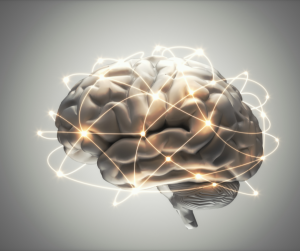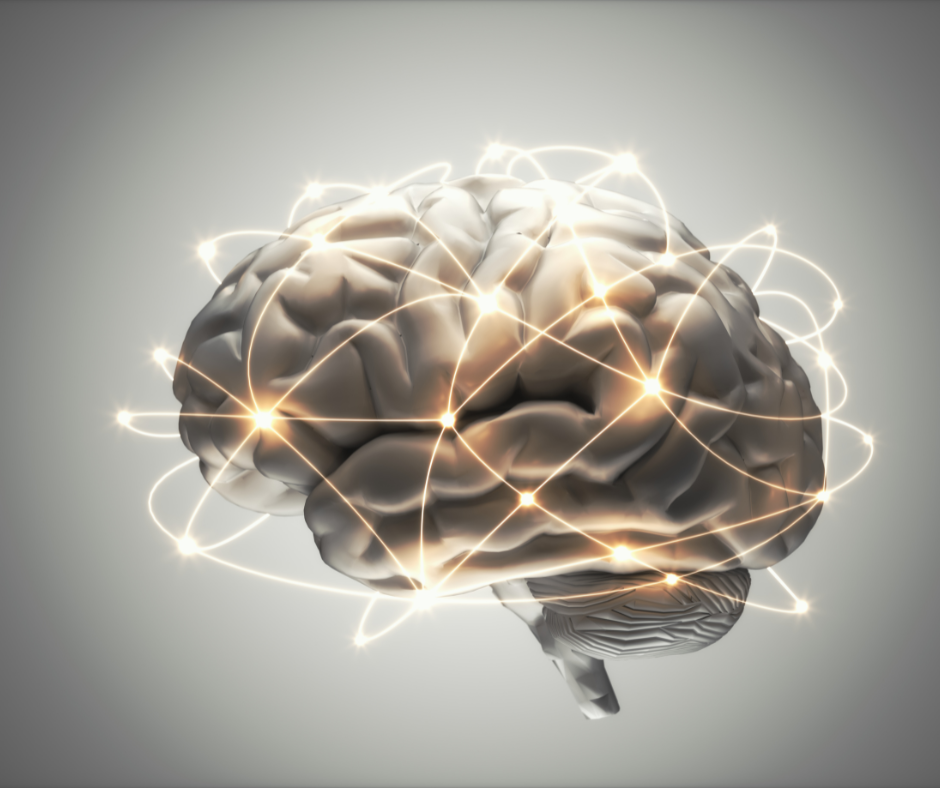
We’re living in a moment where AI is no longer a far-off idea. It’s becoming part of our everyday lives. From how we approach healthcare and education to how we create, learn, and care for the planet, AI is reshaping everything around us. In this piece, I’m diving into seven AI breakthroughs that are already changing the way we live and work. These aren’t just tech wins. They’re real-world shifts unlocking new possibilities and helping us reimagine what’s possible in business, life, and beyond. Let’s look at 7 Groundbreaking Artificial Intelligence Breakthroughs:
Breakthrough 1: Natural Language Processing Enhancements
Natural Language Processing (NLP) has seen remarkable advancements in recent years, pushing the boundaries of how machines understand and generate human language. At the core of these enhancements is the development of sophisticated algorithms that can comprehend context, sentiment, and even subtle nuances in text. These improvements have made voice assistants like Siri, Alexa, and Google Assistant more intuitive and responsive, allowing for more natural and seamless interactions between humans and machines.
Personally, I work from home and depend on my network of Google Nest Minis—there are five throughout the house—rather than using the voice recognition on my Samsung Galaxy S25 Ultra. These devices are central to my day: managing music, timers, calls, and streaming news and weather to every room. After experiencing the leaps made by tools like GPT, my smart speakers still feel behind in terms of real conversational understanding and context. I keep notes on their limitations and am ready for my own digital “knowledge bank” to let these assistants finally catch up to the best AI elsewhere in my workflow.
One of the most notable advancements in NLP is the rise of large language models, such as OpenAI’s GPT,3. These models are capable of generating human-like text, performing language translation, summarizing documents, and even creating poetry and stories that are indistinguishable from those written by humans. The ability to process and generate text with such high accuracy is transforming various industries, from customer service to content creation, making it easier to automate tasks that previously required human intervention.
Moreover, NLP is revolutionizing the way we interact with data. With the ability to analyze vast amounts of unstructured text data, businesses can gain deeper insights into customer behavior, market trends, and competitive landscapes. This is particularly valuable in fields like sentiment analysis, where understanding the emotional tone of customer feedback can help companies improve their products and services. As NLP continues to evolve, ever more sophisticated applications will further enhance our ability to communicate and understand the world around us. For me, NLP tools like meeting note takers and content generators are everywhere in my workflow, dramatically speeding up both professional and personal communication.
Breakthrough 2: Advancements in Computer Vision
Computer vision, the field of AI that enables machines to interpret and make decisions based on visual data, has made significant strides in recent years. These advancements have been driven by improvements in deep learning algorithms and greater availability of large datasets. As a result, computer vision systems are now capable of recognizing and analyzing images and videos with remarkable accuracy, opening up a myriad of applications across various industries.
One of the most impactful applications is in autonomous vehicles, where self-driving cars rely heavily on computer vision to navigate complex environments, detect obstacles, and make real-time decisions. This technology is transforming the automotive landscape with an eye toward safer roads and fewer accidents. In my household, my husband is a big fan of every smart driving feature, like lane correction and assisted parking, while I’m still using my trusty 2013 car and am perfectly content to keep my hands on the wheel for now. For others, full vehicle automation might be welcome right away; for me, trust in AI on the roads is building at its own speed.
In addition to transportation, computer vision powers medical diagnostics. AI imaging systems analyze scans such as X,rays and MRIs to detect abnormalities, often earlier and more accurately than human eyes. In industries like agriculture, it helps monitor crop health, and in retail, it enhances security and improves inventory management. With my Samsung Galaxy S25 Ultra, I use facial recognition every day to unlock my phone, another small but meaningful way AI has made science fiction everyday reality.
Breakthrough 3: AI in Healthcare and Medical Research
Artificial intelligence is revolutionizing healthcare and medical research, offering new tools and techniques that are improving patient care and accelerating scientific discovery. AI’s ability to analyze massive datasets, from health records to genomics, means personalized medicine is becoming a reality. Doctors can now tailor treatments to individual patients based on unique genetic makeup and history.
AI powered diagnostic tools analyze medical images, like CT scans and mammograms, to detect diseases at earlier stages. These tools often spot abnormalities that humans might miss, leading to earlier interventions and better outcomes. AI is also developing predictive models for disease progression and informing smarter treatment plans.
On the research side, AI is accelerating drug discovery, identifying potential compounds and predicting their interactions before traditional lab work even begins. Clinical trial data is analyzed for patterns and insights, improving the design and success rates of new studies. For me, AI is part of my daily health routine: appointments, reminders, and wellness nudges all run through digital tools that keep getting smarter.
Breakthrough 4: Autonomous Vehicles and Transportation
Autonomous vehicles use AI to combine data from computer vision, machine learning, and sensor fusion, making real-time decisions for everything from navigation to safety interventions. By reducing human error, still the leading cause of traffic accidents, self-driving cars have the potential to make transportation safer and more efficient.
These vehicles also optimize driving patterns to cut fuel use and emissions, benefiting the environment. Beyond cars, autonomous technology is revolutionizing logistics and delivery, letting trucks and robots operate around the clock, reducing costs and increasing reliability. For people with limited mobility, this tech offers greater independence and access to transportation. I pay attention as these features roll out and appreciate that my husband is more likely to try every new upgrade, while I take a wait and see approach.
Breakthrough 5: AI in Climate Change and Environmental Solutions
AI is vital in addressing climate change and protecting the environment. By analyzing vast datasets, AI helps researchers understand complex ecological systems, predict climate trends, and create effective sustainability strategies. Machine learning improves traditional climate models, spotting patterns that may be missed by humans and leading to better predictions for weather and emergency response.
On the home front, AI,powered routines help me save energy, letting Google Assistant analyze my patterns and suggest improvements. These everyday optimizations join with global solutions, showing how AI can make a difference at any scale.
Breakthrough 6: AI,Driven Personalization in Marketing
Personalization has become a major factor in marketing success, and AI is leading this shift. By analyzing what we buy, click, and search for, AI crafts recommendations and experiences tailored to us individually. Sometimes the suggestions are so accurate, it feels like my devices know my needs before I do.
Recommendation systems from companies like Amazon and Netflix typify this change, driving not only sales but also brand loyalty. Beyond products, AI uses Natural Language Processing to help marketers better understand customer sentiment and craft more relevant messages. Automation tools now create emails, social posts, and targeted content dynamically, further increasing engagement.
Customer service benefits from AI too, with chatbots and virtual assistants offering instant, tailored support by analyzing queries and historical data. As AI keeps evolving, businesses communicate more meaningfully, and as a consumer, I find the benefits both helpful and sometimes uncannily tuned to my habits.
Breakthrough 7: Robotics and Automation in Industry
AI,driven robotics and automation are transforming efficiency, productivity, and safety across countless fields. In manufacturing, robots now handle repetitive tasks like assembly and quality inspection, working nonstop and adapting to new assignments with AI learning capability. This flexibility is essential in industries requiring constant change.
Logistics are also being revolutionized, with drones and autonomous robots managing inventory, picking orders, and handling deliveries. They speed up processes, cut errors, and reduce costs—and in hazardous environments like construction or oil rigs, AI robots can take on dangerous jobs, improving safety for everyone involved.
At home, robotics brings the future straight to my living room. We have four robot vacuums, one of the best inventions for a busy household like ours. They make life much easier, though our dogs are still convinced they might be the enemy.
The Ethical Implications of AI Breakthroughs
As artificial intelligence advances and becomes a part of everyday life, its ethical implications come into focus. The rapid development of AI brings challenging questions about privacy, bias, job displacement, and accountability. Data security is essential, and so is removing bias from the algorithms we increasingly rely on to make decisions that affect lives.
Responsible use requires clear roles for transparency and explainable algorithms. I keep personal notes on what different models do well or poorly, always fine,tuning my routines and expecting ever higher standards, both as a user and as a champion for ethical, human-centered technology.
Artificial intelligence is transforming life and work, advancing everything from language processing to computer vision, healthcare, transportation, sustainability, marketing, and robotics. These innovations offer efficiency, safety, and quality of life improvements while challenging us to consider the ethics behind their deployment. These 7 Groundbreaking Artificial Intelligence Breakthroughs hopefully show you where we are headed.
As AI continues to merge with other technologies like the Internet of Things, blockchain, and quantum computing the opportunities for innovation and growth are limitless. Responsible development will determine how broadly the benefits are shared.
Personally, I see how much AI is woven into my routines, from my Samsung Galaxy S25 Ultra to the robot vacuums keeping things clean. This year’s wish list even includes the RayBan Meta glasses, proving there’s always room for something smarter and more stylish in my tech lineup. To me, the goal is not just to keep up with technology but to keep moving forward, curious and ready for whatever comes next.

